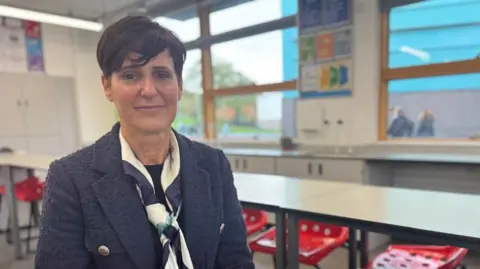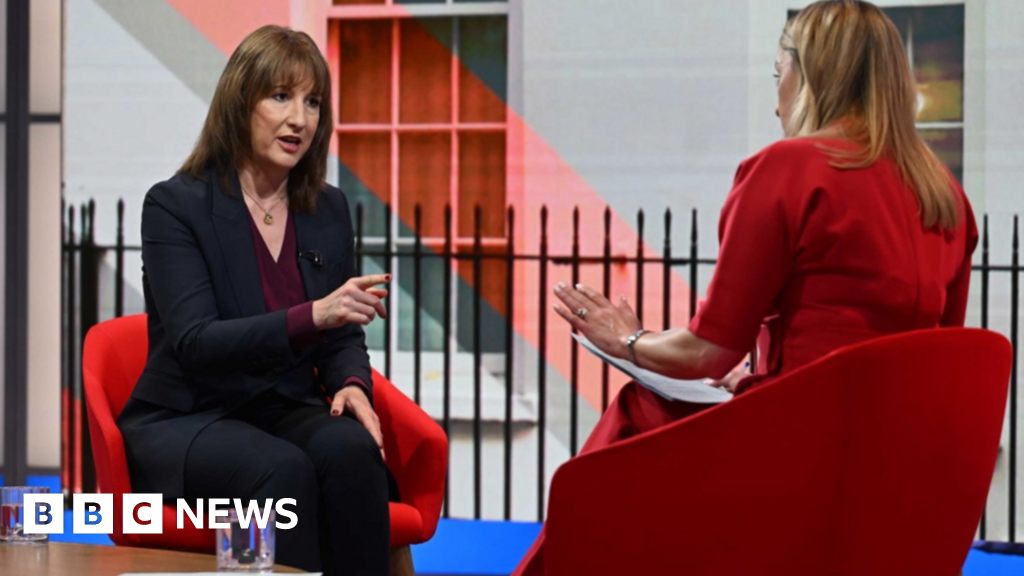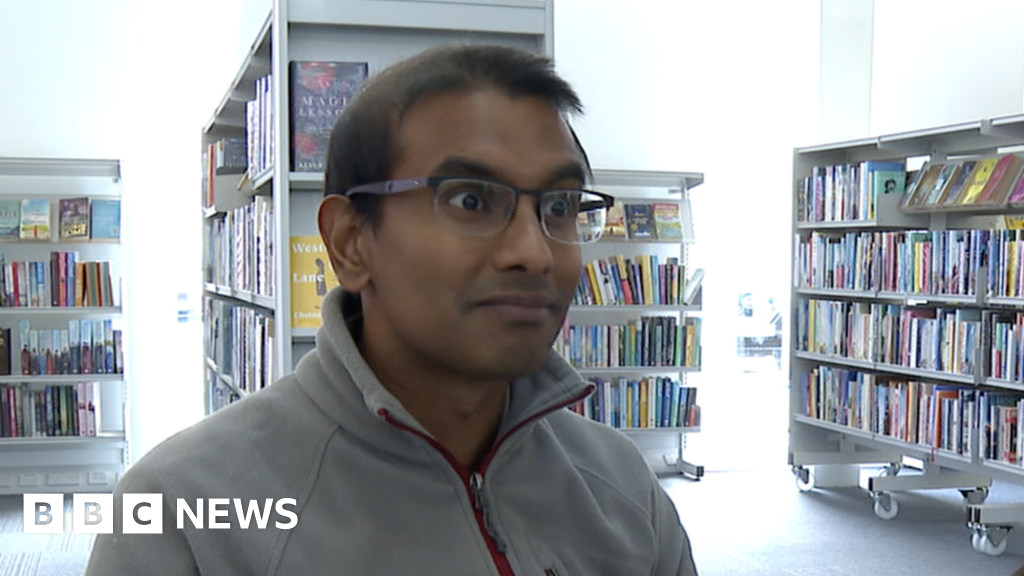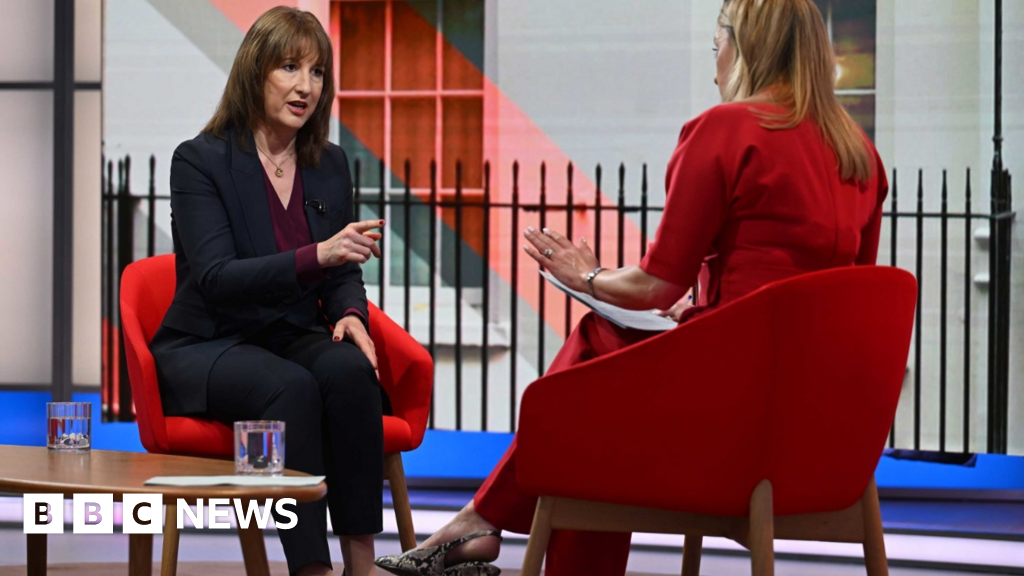Hazel Shearing,Education correspondent and Marthe de Ferrer,BBC News

 Getty
Getty
Ed Sheeran has celebrated changes to the national curriculum in England that mean more students will be able to study creative subjects.
The singer-songwriter praised government plans to modernise what is taught in schools and to remove "outdated systems that stop kids from studying music and the arts".
Following the first review of the curriculum in England in more than a decade, children will also be taught how to spot fake news and disinformation as well as how mortgages work.
Education Secretary Bridget Phillipson said the government wanted to "revitalise" the curriculum but keep a "firm foundation" in basics like English, maths and reading.
Head teachers have said the review's recommendations were "sensible" but would require "sufficient funding and teachers".
The changes come after the government commissioned a review of the national curriculum and assessments in England last year, in the hope of developing a "cutting edge" curriculum that would narrow attainment gaps between the most disadvantaged students and their classmates.
It said it would take up most of the review's recommendations, including scrapping the English Baccalaureate (EBacc), a progress measure for schools introduced in 2010.
The EBacc assesses schools based on how many pupils take English, maths, sciences, geography or history and a language - and how well they do.
The Department for Education (DfE) said the measure was "constraining", and that removing it alongside reforms to another school ranking system, Progress 8, would "encourage students to study a greater breadth of GCSE subjects", such as arts.


Ed Sheeran said without support in school he wouldn't be a musician today
In March, Sheeran wrote an open letter to the government asking for greater investment in music education and the removal of the EBacc, supported by other artists including Harry Styles, Annie Lennox and Sir Elton John.
Sheeran said that the curriculum reforms "give young people hope and the opportunity to study music.
"Without the encouragement I received in school, especially from my music teacher, I wouldn't be a musician today.
"My music education went beyond learning and playing. It helped me find confidence in myself, and music itself was - and still is - so important for my mental health."
He added that there was still "a lot more to do to support music education, especially our music teachers".
Prime Minister Sir Keir Starmer has thanked Sheeran for his campaigning around music education, promising that his government will revitalise the arts in schools.
"I wanted you to know that your voice has been heard", the prime minister wrote.
"Learning music at school made a huge difference to my life. We will make sure every child has access to those experiences… so that creativity isn't a privilege, but a right."
Arts Council England has also praised the curriculum reforms, calling it "a great day for the next generation of creative talent in England."
Other reforms coming as a result of the curriculum review include:
Financial literacy being taught in maths classes, or compulsory citizenship lessons in primary schoolsMore focus on spotting misinformation and disinformation - including exploring a new post-16 qualification in data science and AICutting time spent on GCSE exams by up to three hours for each student on averageEnsuring all children can take three science GCSEsMore content on climate changeBetter representation of diversityThe review also recommended giving oracy the same status in the curriculum as reading and writing, which the charity Voice 21 said was a "vital step forward" for teaching children valuable speaking, listening, and communication skills.
Asked what lessons would be removed from the school day, Phillipson told BBC Radio 4's Today programme it would not be a case of swapping out content for new topics but that there would be "better sequencing" of the curriculum overall.
"We need to ensure that we avoid duplication so that children aren't repeating the things that they might have already studied," she added.
However, the government is not taking up all of the review's recommendations.
It is pushing ahead with the reading tests for Year 8 pupils reported in September, whereas the review recommended compulsory English and maths tests for that year group.
Asked why she stopped short of taking up the review's recommendation, Phillipson said that pupils who are unable to read "fluently and confidently" often struggle in other subjects.
And she addressed the claims that scrapping the EBacc could lead to fewer pupils taking history, geography and languages at GCSE, saying the measure "hasn't led to improved outcomes" or "improvement in language study".
"I want young people to have a good range of options, including subjects like art and music and sport. And I know that's what parents want as well," she said.
She said ministers recognised "the need to implement this carefully, thoroughly and with good notice", adding that schools would have four terms of notice before being expected to teach the new curriculum.
Prof Becky Francis, who chaired the review, said her panel of experts and the government had both identified a "problem" pupils experience during the first years of secondary school.
"When young people progress from primary into secondary school, typically this is a time when their learning can start falling behind, and that's particularly the case for kids from socially disadvantaged backgrounds," she told the BBC.


Professor Becky Francis led the curriculum and assessment review
She said the approach to the review was "evolution not revolution", with England's pupils already performing relatively well against international averages.
She said the call for more representation of diversity in the curriculum was not about "getting rid of core foundational texts and things that are really central to our culture", but was more about "recognising where, both as a nation but also globally, there's been diverse contribution to science and cultural progress".
Shadow education secretary Laura Trott said the changes "leave children with a weaker understanding of our national story and hide standards slipping in schools".
"Education vandalism will be the lasting legacy of the prime minister and Bridget Phillipson," she added.
The former Conservative schools minister, Nick Gibb, said the decision to scrap the EBacc would "lead to a precipitous decline in the study of foreign languages", which he said would become increasingly centred on private schools and "children of middle class parents who can afford tutors".
The Liberal Democrats have welcomed the broadening of the curriculum, but said "scrapping instead of broadening the EBacc is not the right move."
Education spokeswoman Munira Wilson said head teachers were having to "cut their budgets to the bone" and would be asking how they are supposed to fund the changes.
"Without a costed plan and proper workforce strategy, these reforms will stretch teachers even further and fail our children," she said.
Pepe Di'Iasio, general secretary of the Association of School and College Leaders, said the review had proposed "a sensible, evidence-based set of reforms".
But he said delivering a "great curriculum" also required "sufficient funding and teachers", adding that schools and colleges did not currently have all the resources they need.
"It's ironic that the government keep asking for more and more from a pot that is actually getting smaller and smaller," Di'Iasio added.
"We'd ask the government to look carefully at school finances and make sure they invest so that we can make sure we can implement the shared aspirations and ambitions of this report."
He said a set of "enrichment benchmarks" - which the government said would offer pupils access to civic engagement, arts and culture, nature and adventure, sport, and life skills - had been announced "randomly" and "added to the many expectations over which schools are judged".
Additional reporting by Hope Rhodes

 Movie
Movie 3 weeks ago
64
3 weeks ago
64 





![Presidents Day Weekend Car Sales [2021 Edition] Presidents Day Weekend Car Sales [2021 Edition]](https://www.findthebestcarprice.com/wp-content/uploads/Presidents-Day-Weekend-car-sales.jpg)




 English (United States)
English (United States)